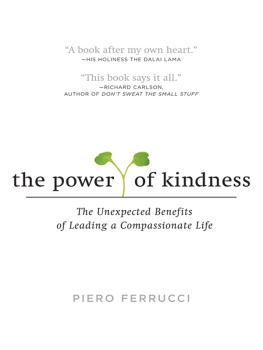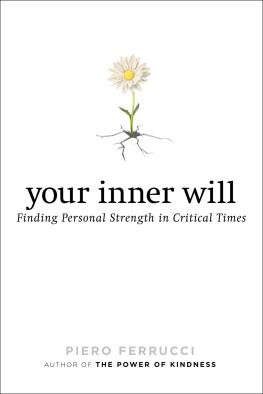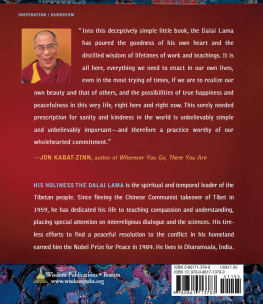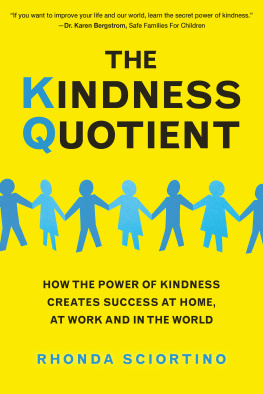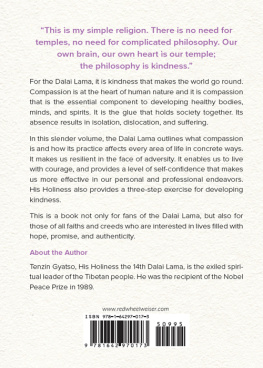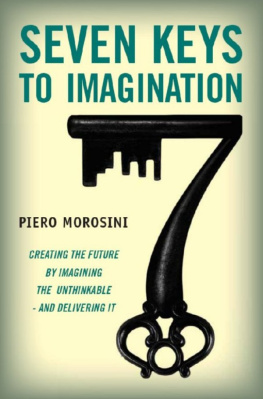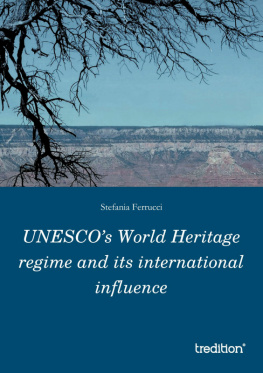The POWER of KINDNESS
The Unexpected Benefits of Leading a Compassionate Life
PIERO FERRUCCI
Translated by Vivien Reid Ferrucci
J EREMY P. T ARCHER /P ENGUIN
a member of Penguin Group (USA) Inc.
New York
JEREMY P. TARCHER/PENGUIN
Published by the Penguin Group
Penguin Group (USA) Inc., 375 Hudson Street, New York, New York 10014, USA Penguin Group (Canada), 90 Eglinton Avenue East, Suite 700, Toronto, Ontario M4P 2Y3, Canada (a division of Pearson Penguin Canada Inc.) Penguin Books Ltd, 80 Strand, London WC2R 0RL, England Penguin Ireland, 25 St Stephens Green, Dublin 2, Ireland (a division of Penguin Books Ltd) Penguin Group (Australia), 250 Camberwell Road, Camberwell, Victoria 3124, Australia (a division of Pearson Australia Group Pty Ltd) Penguin Books India Pvt Ltd, 11 Community Centre, Panchsheel Park, New Delhi110 017, India Penguin Group (NZ), 67 Apollo Drive, Rosedale, North Shore 0745, Auckland, New Zealand (a divison of Pearson New Zealand Ltd) Penguin Books (South Africa) (Pty) Ltd, 24 Sturdee Avenue, Rosebank, Johannesburg 2196, South Africa
Penguin Books Ltd, Registered Offices: 80 Strand, London WC2R 0RL, England
Copyright 2006 by Piero Ferrucci
Translation 2006 by Vivien Reid Ferrucci
All rights reserved. No part of this book may be reproduced, scanned, or distributed in any printed or electronic form without permission. Please do not participate in or encourage piracy of copyrighted materials in violation of the authors rights. Purchase only authorized editions.
Published simultaneously in Canada
Most Tarcher/Penguin books are available at special quantity discounts for bulk purchase for sales promotions, premiums, fund-raising, and educational needs. Special books or book excerpts also can be created to fit specific needs. For details, write Penguin Group (USA) Inc. Special Markets, 375 Hudson Street, New York, NY 10014.
The Library of Congress catalogued the hardcover edition as follows:
Ferrucci, Piero.
[Forza della gentilezza. English]
The power of kindness: the unexpected benefits of leading a compassionate life / Piero Ferrucci; translated to English by Vivien Reid Ferrucci.
p. cm.
Includes bibliographical references.
ISBN: 978-1-1012-1602-6
1. Kindness. 2. Conduct of life. I. Title.
BJ1533.K5F4713 2006 2006043865
177'.7dc22
While the author has made every effort to provide accurate telephone numbers and Internet addresses at the time of publication, neither the publisher nor the author assumes any responsibility for errors, or for changes that occur after publication. Further, the publisher does not have any control over and does not assume any responsibility for author or third-party websites or their content.
PREFACE
This is a book after my own heart. Piero Ferrucci has drawn on both his broad experience as a psychotherapist and what I think of as fundamental human values to write on the importance of kindness. What I particularly appreciate about his presentation is that he makes kindness the starting point, the fount from which flow so many other positive qualities, such as honesty, forgiveness, patience, and generosity. It is a compelling and encouraging approach.
I believe that if we stop to think, it is clear that our very survival, even today, depends upon the acts and kindness of so many people. Right from the moment of our birth, we are under the care and kindness of our parents; later in life, when facing the sufferings of disease and old age, we are again dependent on the kindness of others. If at the beginning and end of our lives we depend upon others kindness, why then in the middle, when we have the opportunity, should we not act kindly toward others?
Kindness and compassion are among the principal things that make our lives meaningful. They are a source of lasting happiness and joy. They are the foundation of a good heart, the heart of one who acts out of a desire to help others. Through kindness, and thus through affection, honesty, truth, and justice toward everyone else, we ensure our own benefit. This is a matter of common sense. Consideration for others is worthwhile because our happiness is inextricably bound up with the happiness of others. Similarly, if society suffers, we ourselves suffer. On the other hand, the more our hearts and minds are afflicted with ill will, the more miserable we become. Therefore, we cannot avoid the necessity of kindness and compassion.
On a simple, practical level, kindness creates a sense of warmth and openness that allows us to communicate much more easily with other people. We discover that all human beings are just like us, so we are able to relate to them more easily. That generates a spirit of friendship in which there is less need to hide what we feel or what we are doing. As a result, feelings of fear, self-doubt, and insecurity are automatically dispelled, while at the same time other people find it easier to trust us, too. What is more, there is increasing evidence that cultivating positive mental states like kindness and compassion definitely leads to better psychological health and happiness.
It is tremendously important that we try to make something positive of our lives. We were not born for the purpose of causing trouble and harming others. For our life to be of value, as Piero Ferrucci amply demonstrates hereand I am grateful to him for expressing it so clearlywe need to foster and nurture such basic good human qualities as warmth, kindness, and compassion. If we can do that, our lives will become meaningful, happier, and more peaceful; we will make a positive contribution to the world around us.
His Holiness the Dalai Lama
May 2004
INTRODUCTION
T he little old lady no longer bothered to eat. Alone in the world, she felt forgotten by everyone. She was so depressed, she could not even swallow. The very idea of ingesting food was too much for her. Closed in her silent sadness, she was simply waiting for death.
At this point, Millina enters the scene. Millina was my aunt. Every afternoon she would do her rounds, taking care of homeless people, the elderly forgotten in nursing homes, neglected children, the outcasts and the maladjusted, the dying. She would try to make them feel a little better.
Millina meets the lady who no longer eats. She talks to her and gets her to talk a little too. In a faint voice, the old lady tells Millina about her sons and daughters, how they are too busy to look after her. No one comes to visit anymore. She has no illness. She is merely exhausted because she cannot manage to eat, and she cannot manage to eat because she is too exhausted.
How would you like some ice cream? Millina asks. Its a strange idea, giving ice cream to a dying person. But it works. With every spoonful, ever so slowly, some color, voice, and life return to the old lady.
Its simple, its ingenious: Give a tasty, easily ingested food to someone who finds it hard to eat, and it will give her a quick lift. But this explanation is only part of the picture. The ice cream solution came to Millina only because she had taken the woman to heart. Because she had seen that this lady needed not only food, but above all care and attentionjust what all of us need, as we need oxygen. Before the ice cream, it was the warmth of solidarity that the lady received, and what brought color back to her face was not merely food but, more significantly, a simple act of kindness.
Kindness? It may strike us as absurd to even approach the subject: Our world is full of violence, war, terrorism, devastation. And yet life goes on precisely because we are kind to one another. No newspaper tomorrow will tell of a mother who read a bedtime story to her child, or a father who prepared breakfast for his children, of someone who listened with attention, of a friend who cheered us up, of a stranger who helped us carry a suitcase. Many of us are kind without even knowing it. We do what we do simply because it is right.

